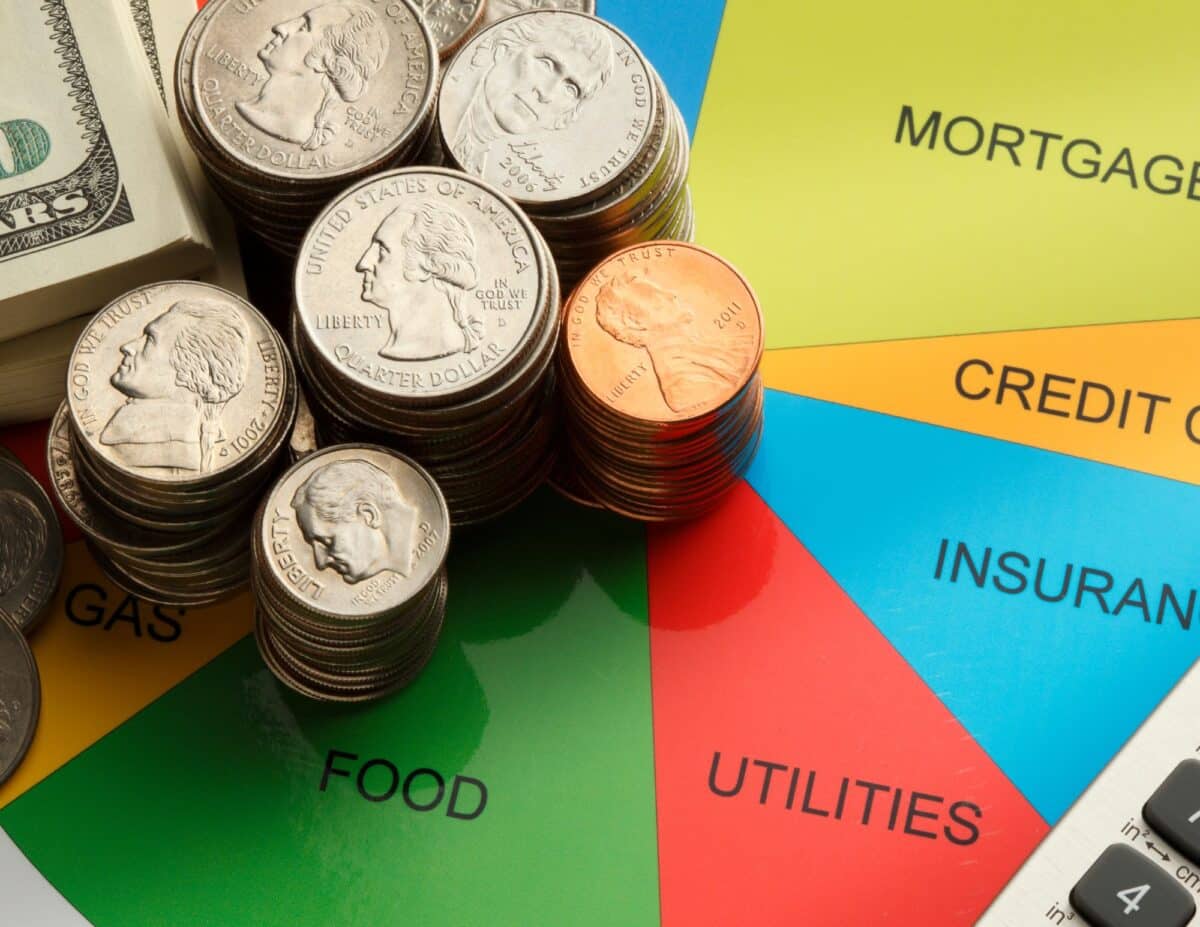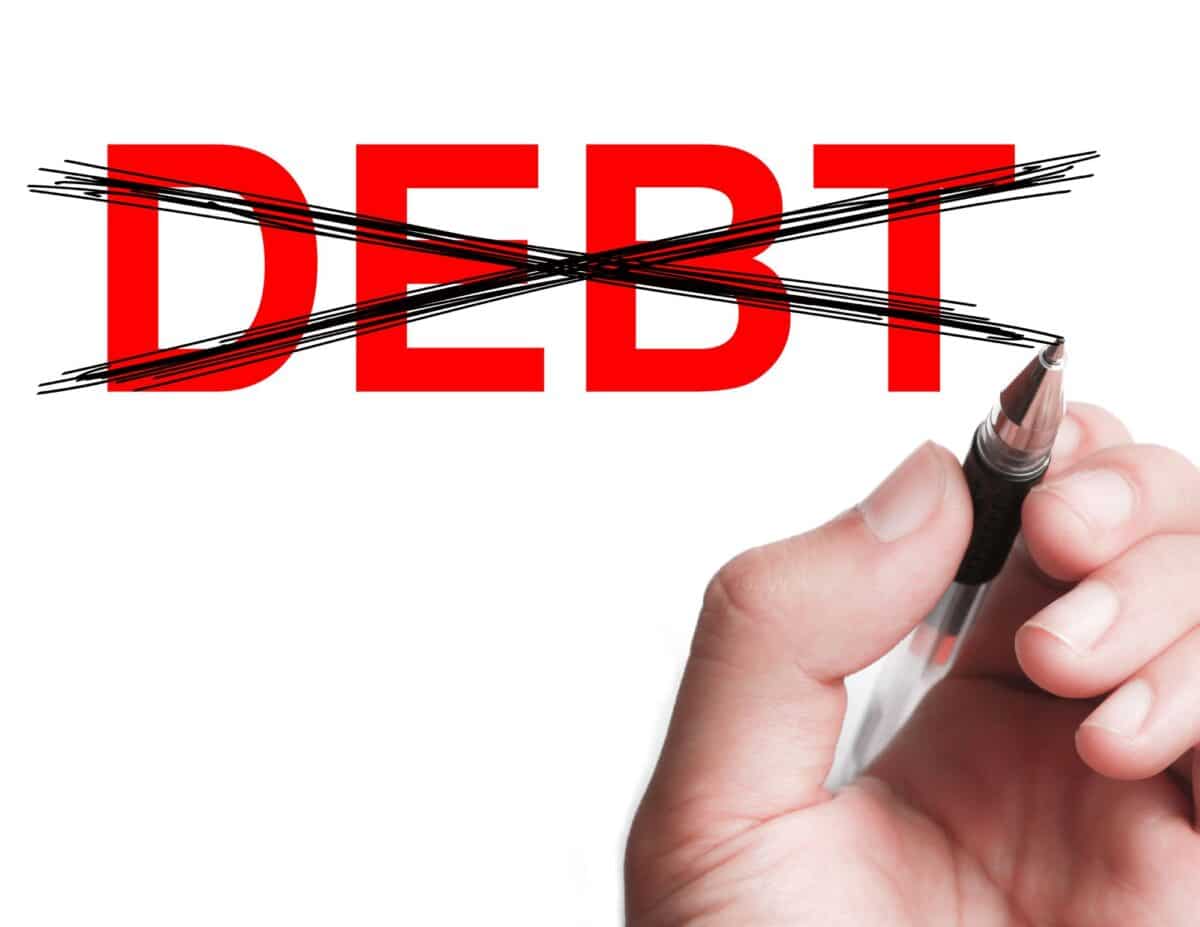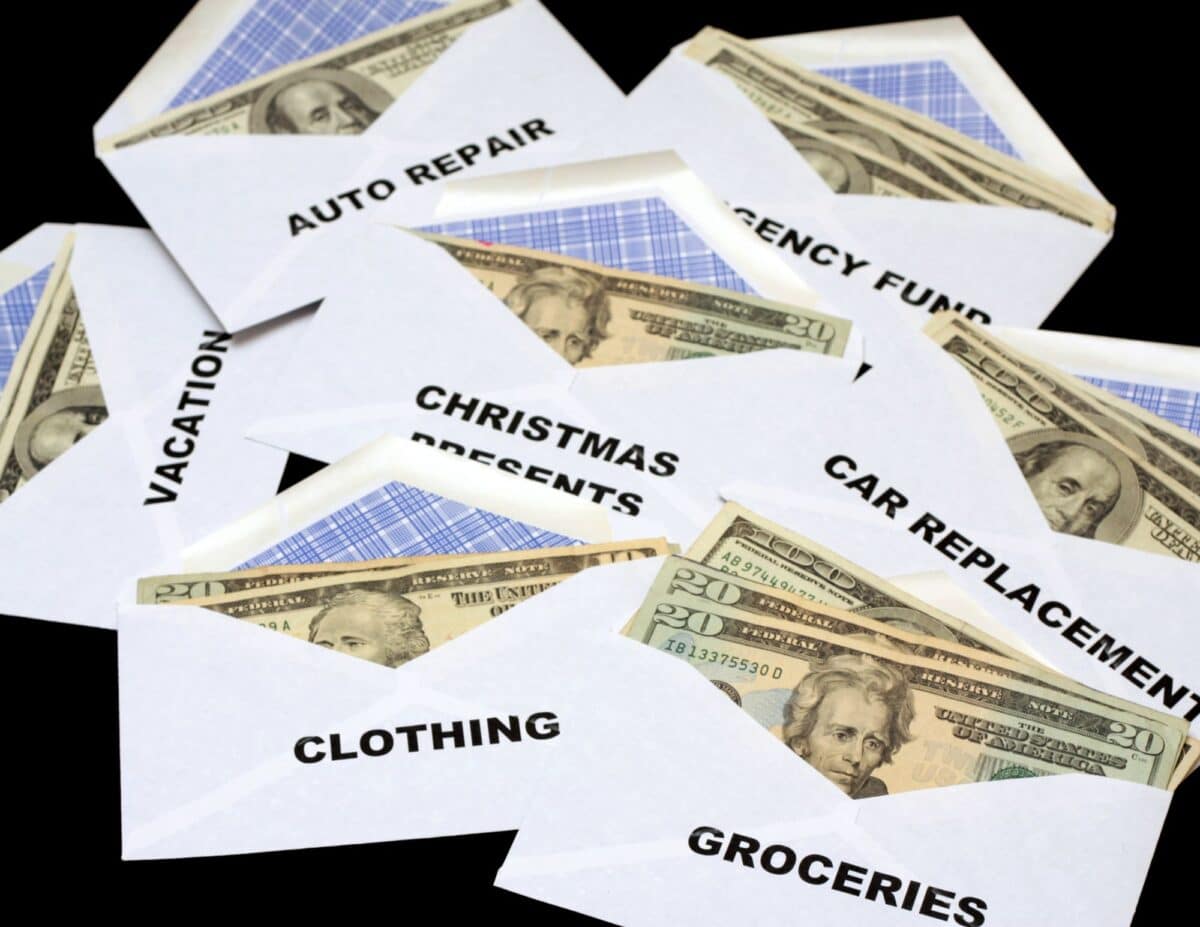Work demands, household chores, carpooling to activities, and managing finances are some of the challenges faced by families. Sometimes it might seem overwhelming to live as a one-income family.
I’ve lived on a single income as a stay-at-home mommy for over 30 years, so I can tell you that to living frugally on one income is definitely possible.
It takes careful planning, budgeting, and some creativity and some necessary adjustments.
In this blog post, I will discuss money management skills and practical tips for living frugally on one income so that you can provide for your family’s needs without breaking your piggy.
PLEASE NOTE: Disclaimer: The information provided is for educational purposes only and is not to be taken for financial advice. If you need financial advice, please consult a trained expert, such as a financial planner or advisor.
Bookmark on Pinterest!
Living Frugally on One Income and Its Importance in Today’s Economy
As stay at home moms, we all understand that money doesn’t always go quite as far as we’d like it to, especially for a one-income household.
By making wise decisions about your expenses and budgeting strategically, you can achieve greater financial stability. You’ll also create peace of mind knowing that your family has savings should something come up!
Read on and discover more frugal living tips on how you can effectively save and live frugally on one income with little worry in today’s uncertain economic environment living on one income.

Strategies for Living Frugally on One Income
Are you a working mom and struggle to balance your job with the daily demands of parenting? You are not alone—raising children while trying to make ends meet can be overwhelming and stressful. But it doesn’t have to be that way!
With the right mindset, healthy habits, and thoughtful planning, you can thrive! In this blog post, I’ll discuss frugal living tips and strategies to live frugally on one income and make the most of your money.
Assessing Your Financial Situation
Assessing your financial situation is a critcal step in achieving financial stability. Evaluate your financial health regularly to determine areas that need improvement. Next, develop a plan to reach your financial goals.
Take a closer look at your income and household expenses, including your monthly bills, medical bills, and credit card debt. Pay attention to your spending habits, including non-essential purchases that may have an impact on your overall financial well-being.
While examining one account, I noticed a duplicated subscription charge by Amazon. I ended up saving $150 by finding this mistake because I analyzed our credit card statements.
By taking the time to analyze your checking account, you can make informed decisions to enhance your financial health. You’ll be able to work toward achieving your long-term money goals by applying this post’s frugal living tips.
Creating a Budget and Tracking Expenses
Making a budget and tracking your expenses is essential to personal financial success. To begin, start by reviewing your monthly income and expenses.

Once you have a clear understanding of your finances, determine which expenses are necessary and which ones can be reduced or eliminated. Be realistic with your budget goals and don’t forget to account for unexpected expenditures.
Tracking expenses can be accomplished through a variety of methods such as mobile apps and financial spreadsheets. Remember, consistency is key in updating your budget and expense tracking tools. With discipline and commitment, you’ll be on your way to achieving your financial goals of living on one income.
Pay Off Debt
Debt can be a heavy burden that drags us down and gives us financial stress, but it’s not impossible to overcome. Paying off debt requires discipline and dedication, but the long-term benefits are worth it.
For instance, If you have medical debt, call the hospital, doctor, or lab and ask if they could reduce the bill or arrange a payment plan. I saved more than half of a lab bill when I called them.
You can also analyze your health insurance plan and see if there are any changes you can make to reduce the cost.
Whether it’s creating an emergency fund or investing in your retirement, having money tucked away in a savings account can be sense of security and freedom. Taking control of your finances is a crucial step toward a brighter future.
Strategies for Paying Off Debt on One Income
Tackling debt is never easy, especially when you’re relying on a single income. It can feel overwhelming and daunting to figure out where to even start. However, some strategies can help make the process more manageable.
One such strategy to pay off debt is the snowball method. This strategy entails prioritizing the repayment of your smallest debts first while meeting the minimum payments for bigger debts. Once a small debt is paid, you can take that extra amount and apply it to the next debt on your list.
Another approach is the avalanche method, which involves concentrating on high-interest debt, such as credit cards, regardless of the size of the debt. By making a plan and sticking to it, you can chip away at your debt, one payment at a time.

Furthermore, you can put a freeze on spending money for a month. This means you would avoid making any unnecessary purchases and only spend money on essential items during that period.
Motivation is important as a successful strategy for repaying debt. Please read my post, “Paying Off Debt: Motivation Strategies for Best Results” for debt payment motivation ideas.
No matter which debt repayment strategy you choose, understanding your financial situation and making a plan of action is essential in achieving your goal. With dedication and discipline, you’ll be on your way to being debt-free.
Living Within Your Means
To live within your means is an essential part of financial success. By creating a budget, tracking expenses, and developing a debt repayment plan, you can manage stress, and pave the way to a brighter financial future.
One way to help to live within your means is a cash envelope system. This is a cash-only system that can be helpful if you need help sticking to a budget.
The cash envelope system involves setting aside cash for different spending categories and keeping them in separate envelopes.

When funds run out, that’s it: no more spending until the next payday or the next envelope is replenished. This envelope system can be an effective way to control spending, especially when you’re tempted to overspend on impulse buys.
By understanding and applying the principles of budgeting, tracking expenses, analyzing your spending patterns as well as paying off debt with strategies such as the snowball or avalanche method, you can be on your way to living to financial freedom by frugally living on one income.

Importance of Building an Emergency Fund and Savings
Building an emergency fund is crucial for all individuals, regardless of their financial status. No one can predict the future.
Having that extra cushion of funds can truly make a difference in times of unexpected expenses that come with a job loss, a medical emergency, or seasonal disasters.
It is never too early or too late to start a savings account for emergencies and the earlier one begins, the better off one will be. These endeavors may seem daunting, but they bring peace of mind, security, and financial freedom.
An emergency fund won’t cover an extreme loss, though. Having a strong community of family and friends to turn to in times of need is important.
When my family experienced a horrible financial situation, the the support of friends and my community greatly helped our dire circumstances.
Once you have your emergency fund saved, you can work towards building some savings. A good place to start is a 52-week money savings challenge. This is a simple way to build a saving account or have extra cash for a vacation, extra car payments, or toward buying a house.

Ways to Save on Monthly Expenses
In today’s economy, being able to cut costs has become more important than ever. There are a few ways to reduce your expenses. One way is to create a budget and stick to it.
Make a list of all your expenses and separate them into fixed and variable costs. Cut back on non-essential spending, like eating out at restaurants or splurging on pricy coffee.
Consider switching to a cheaper internet plan or cell phone plan, such as Mint Mobile and look for discounts on health insurance and homeowners insurance rates. Forbes Advisor has information on getting discounts on homeowners insurance.
Save Money on Common Monthly Expenses
In today’s economic climate, saving money on monthly living expenses has become more important than ever.
One of the primary areas where you can cut costs is housing. Downsizing to a smaller house or moving to a less expensive neighborhood are great options to consider.
Transportation can also be a hefty expense, but carpooling or taking public transportation can significantly reduce costs.
Additionally, paying attention to your utilities can help lower your monthly bills. To conserve energy and save on costs, unplug appliances when not in use, adjust your thermostat a few degrees lower, and switch to energy-efficient light bulbs.

Frugal Grocery Shopping
A grocery budget is an essential aspect of frugal living as it can help you to manage your food expenses effectively.
To create a grocery budget, start by analyzing your spending habits and determine the areas where you can cut back. Calculate your weekly or monthly grocery budget and adhere to it strictly to manage your expenses.
Save Money on Groceries
Without sacrificing quality or nutrition, there are lots of effective ways to save money on groceries without using coupons and without sacrificing quality or nutrition.
Plan your meals and making a grocery shopping list so that you only purchase what you need is one way to save on your grocery bill. Buying your groceries online can also help you stick to your budget, as it eliminates impulse purchases.

Another strategy is to buy in bulk and take advantage of sales and discounts. Additionally, you can opt for the generic or store-brand versions of products. I find these brands are often just as good as name brands but cost less.
Benefits of Cooking at Home
Preparing your own frugal meals at home can be a game-changer for your health and your wallet. Cooking at home allows you to control the ingredients that go into your dishes, ensuring that you’re consuming wholesome, nutritious foods.
Eating out frequently, on the other hand, often means being exposed to high levels of sodium, sugar, and unhealthy fats. Making meals at home can also save money, as eating meals out can add up quickly over time.
Additionally, making meals together as a family can be a cheap family activity and a chance to teach your children necessary skills that will benefit them throughout their lives.

By committing to cooking at home more often allows you to focus on your health and your budget.
Cut Expenses on Clothes and Entertainment
As the cost of living continues to rise, many individuals are looking for ways to cut back on spending. One area where we often overspend without even realizing it is clothing and entertainment.
It’s easy to get caught up in the latest trends and upcoming events, but it’s important to prioritize our finances and make necessary adjustments.
Consider shopping for clothing at discount stores or a thrift shopping. Look for free or low cost entertainment options in your community.
Save on Clothing and Entertainment
One way that can make a big difference is to shop for clothes out of season. Retailers often offer big discounts on items that are no longer in season, which can mean significant savings for savvy shoppers.
Another way is to subscribe to streaming services instead of satellite or cable TV, which can save hundreds of dollars per year.
Finally, consider cutting back on eating out and instead cooking meals at home. Not only is it cheaper, but it can also be healthier and more socially rewarding. With a few simple changes, anyone can adopt a more frugal lifestyle.
Increase your income
In today’s modern economy, increasing your income has become increasingly important.
Whether you’re aiming to clear your student loans, save for a house down payment, or enhance your lifestyle, having extra funds can be transformative.
Suggestions on How to Increase Your Income
In today’s economy, it’s important to find ways of making money. One suggestion for gaining extra money is to take on a side hustle, such as freelance work or starting an online business. This can bring in extra income while also providing an opportunity to explore new skills and interests.
Another option is to pursue a higher-paying job, whether that means seeking a promotion within your current company or looking for opportunities in a different field. It may require additional education or training, but the investment can pay off greatly.
Whatever strategy you choose, remember that increasing your income takes effort and dedication. With perseverance and a clear plan, you can achieve your financial goals.
Importance of Balancing Additional Income
The pursuit of success often leads us to seek out additional income streams.
The allure of higher earnings can make it tempting to sacrifice rest and self-care to achieve our goals. However, it is crucial to remember that disregarding our physical and mental well-being can ultimately impede our ability to perform and succeed in both our personal and professional endeavors.
It’s a delicate balance, but taking the time to recharge and prioritize self-care can increase our productivity and success in the long run.
The next time you find yourself considering sacrificing rest for extra work hours, remember the importance of taking care of yourself first.

23 Simple Tips for Living Frugally on One Income
Below are 23 tips to frugally live on one income and save money:
1) Saving on Electricity
One simple and effective strategy is to unplug all electronics when they’re not in use. Many appliances and devices continue to consume power even when they’re turned off, a phenomenon known as “phantom power.”
By unplugging devices like chargers, computers, and televisions when you’re not using them, you can reduce the amount of phantom power consumed in your home and save on electricity bills.
Related Post: How to Save Money on Electric Bills in Summer
2) Caring for Appliances
Proper maintenance of your appliances is important for their longevity and efficiency. This includes regularly cleaning the refrigerator coils, defrosting the freezer, changing air filters in air conditioners, and cleaning washing machines.
By taking a few extra minutes each month to care for your appliances, you can ensure that they are running as efficiently as possible and reduce your energy costs.
3) Buying Second-Hand
Whether it’s clothes, furniture, or electronics, buying second-hand from thrift shops, consignment shops or garage sales is an effective way to stretch your dollar.
Websites like eBay, Craigslist, and Facebook Marketplace are great sources for gently used items in nearly any category.
Not only can you get quality products at a fraction of the cost, but you’re also keeping usable goods out of landfills.
Related post: Mastering Thrifting: How to Thrift Shop Like a Pro
4) Minimalize by Selling Things
Minimalism is a great way to reduce clutter and acquire “free money”. Declutter your home and look for items you no longer need or use. You can sell these things to make money.
You can make an extra income by hosting and having a successful yard sale, participating in a local swap meet, or listing items online.
5) Dump Diapers by Potty Training in a Weekend
By dedicating one weekend to potty training your child, you can quickly move them away from using diapers and onto using the toilet, thus saving money on diapers. Cloth diapers will also save you money in the long run.
Related post: Weekend Potty Training: Dump Diapers, Save Big!
6) Grow a Garden and Can Your Food
Gardening offers a fantastic way to produce fresh, organic produce at home. Not only can you save money by growing your own food, but you can also preserve it with simple canning methods. This will help ensure that you have a supply of healthy food throughout the year.
Learning frugal gardening tips will help you to inexpensively grow a garden.

7) Cancel Subscriptions and Memberships
Take inventory of any subscriptions or memberships you have, including gym memberships, and consider canceling those that you no longer use or need. This is a simple way to cut costs every month without having to make any drastic changes.
8) Make your Own Cleaning Supplies
Making your own cleaning supplies, such as homemade laundry detergent and DIY natural household cleaners is a great way to reduce expenses while also eliminating any harsh chemicals that you may find in store-bought products. You can create potent homemade cleaners using simple pantry items like baking soda, lemon juice, and vinegar.

9) Do Your Own Repairs if You Can
If you have basic repair skills, try doing your own repairs around the house instead of hiring a professional. Repairing things yourself saves you time and money as many simple repairs are not difficult to do yourself.
10) Use the Library Instead of Buying Books
The library is a great resource for getting books, magazines, and other materials at no cost. Utilize your local library to save on books that you’d otherwise have to buy.
11) Choose Frugal Family Activities
Look for free or cheap family activities that you can all enjoy. This could include visiting local parks, playing board games, going on hikes, attending festivals, and more. There are numerous cost-effective ways to have fun that will delight the entire family.

12) Only Buy What You Need
When it comes to shopping, only buy what you need. Make a list of items before going to the grocery store and stick to it.
Avoid impulse purchases. Only buy items that are essential for your household. Consider waiting a few days before making non-essential purchases to ensure that you need the item.
13) Saving on Heating and Cooling Costs
During the different seasons, switch up your heating and cooling settings to reduce energy use. In the summer, keep temperatures higher, and in the winter, keep them lower to save on electricity bills.
Consider investing in window treatments like blackout curtains, which can help maintain a comfortable temperature throughout your home.
13) Use a Programmable Thermostat to Save Energy
Employing a programmable thermostat is a simple method to lower your energy consumption and cut down on expenses. You can set the times when you want your home to be cooler or warmer and keep the temperature constant while no one is at home.
14) Make Gifts Instead of Buying Them
For special occasions, consider making gifts for your loved ones instead of buying them. This not only saves money but also shows that you put the time and effort into creating something unique and meaningful. Homemade gifts can be handcrafted cards to complex creations such as quilts or jewelry.
15) Invest in Energy-Efficient Lightbulbs
Investing in energy-efficient light bulbs can help you save on electricity bills. Energy-effieient bulbs use less electricity than traditional light bulbs. You can leave them on for longer periods without having to worry about a spike in your energy costs.
16) Make Your Own Coffee
Making coffee at home instead of buying it from a shop can be a great way to cut costs. When I examined my bank statement, I noticed my husband regularly bought coffee out and was spending over $30 a month. You don’t realize it’s as much money, but a dollar here and there adds up.
Invest in an affordable and quality coffee maker, and stock up on beans or grounds whenever they go on sale.
This will ensure that you always have fresh coffee without spending money at convenience stores or coffee huts.
17) Buy In-Season Produce and Can the Rest
Buying seasonal produce is usually cheaper and fresher than out-of-season alternatives. Additionally, consider canning or freezing any extra fruits and vegetables that you buy to make them last longer. This will help you stretch your budget without sacrificing nutrition or taste.
Related post: Canning Supplies – Best Essentials for Success
18) Cook Meals From Scratch
Preparing meals from scratch is an excellent way to cut costs and reduce your expenses. You’ll also make healthier choices by avoiding processed foods that are often full of additives and preservatives.
Baking your own homemade bread cuts grocery expenses and gives you full control of the ingredients used. You can even make your own sourdough pizza dough for inexpensive pizza.
19) Avoid Buying Bottled Water
While convenience is tempting, buying bottled water can be a burden on your wallet. Buy a water bottle and fill it up with tap water instead. This will help you save while reducing your environmental impact.
20) Shop Around for the Best Deals
When you plan to buy something, it’s important to allocate some time for comparison shopping. Look out for discounts, coupons, or sales to get a cheaper price before making a purchase.
21) Use Beans Instead of Meat
Beans and other legumes are an wonderful source of protein and one of the cheapest foods, so use them as a substitute for meat when preparing meals. Not only will you save money but you’ll also improve your nutrition by incorporating more plant-based proteins into your diet.
22) Use Leftovers Before They Become Science Projects
Make the most out of your leftovers by using them up before they go bad. Not only will you save money by not having to buy new food but you’ll also reduce your food waste.

23) Make a Christmas Budget and Stick to It
Christmas can be a great time of year but it can also be an expensive one. Develop a realistic holiday budget and stick to it. This will help you keep your expenses in check and ensure that you don’t overspend during the festive period.
Living Frugally on One Income is More Than Doable
To wrap it up, living on a single income is no easy feat. While there are many tips and tricks available to help you do this, you need to find the ones that work best for your situation.
If you liked my blog post, please share on Pinterest:
Even though a one-income household might cause some discomfort initially, understand that it can offer freedom in the long-run—your dreams become more possible when finances don’t stand in your way!
To live frugally on just one income is an achievable objective with commitment, consistency, and careful planning.

Key Points Covered in This Blog Post
Ultimately, becoming a financially savvy person requires taking action. By evaluating your current financial situation, setting intentions for your goals, and embracing a frugal lifestyle, you can become well on your way to financial freedom.
In addition to committing to a household budget, saving money on housing and monthly expenses, frugal grocery shopping, shopping at thrift stores, making your own laundry detergent, making cuts in clothing and entertainment costs, and diligently paying off debt, consider looking into ways to increase income and build an emergency fund.
Encouragement to Live Frugally on One Income
Living on only one paycheck can indeed be challenging and even hard at times. But it doesn’t have to be a stressful, overwhelming experience. With determination, planning, and organization, it is possible to do more with less.
By maintaining an open mindset and fostering a positive attitude toward living frugally on a single income, you can move closer to reaching your financial objectives—one step at a time!
Short Bio
Catherine Kay (me) is a stay-at-home of nine children. I’m also a blogger who is passionate about making parenting a little easier, besides giving tips about living a frugal life. I love thrift shopping and have over 40 years of shopping at thrift shops, finding great deals and living frugally. I love sharing practical tips that help parents to save money. Find out more about me on my About Page. Need more frugal living hacks? Check out my Money Management page for even more posts on saving money and living frugally!
–YOU MIGHT ALSO LIKE–














love the all the suggestions for living on a smaller budget, I think people think you need to eat less on a smaller budget but there are so many great options for low cost items
I’ve also eaten less to save money, but the other options are much more appealing! Thanks so much for your comment, Tianna!
These are some wonderful suggestions, and so many are just common sense. With today’s national crisis and our fast-paced lifestyles, I love your suggestions about analyzing our spending and living within our means. The envelope budget system works well!
Thank you so much for your comment, Dana! Realizing the severity of the problems with our national financial system and how hard it is to make ends meet is the biggest reason I decided to write my blog.
I love all these suggestions. I do a lot of these especially unplugging small appliances and gadgets that are not in use. The envelope system works great! I also love to track my expenses it makes a huge difference. Me and my partner are about to have a mortgage so these will be so helpful for us. Thanks
I’m so glad this will help you with your mortgage! Thanks for sharing that, Valencia!
Great suggestions! Both my husband and I work from home. We use one car, and it’s paid for. This saves a bunch of money. Thank you for the link to the apps, too!
Thanks, Cindy!
I really like the idea to use the envelope system. I admit it can be hard to live within my means while only having my husbands income and I think using the envelopes would help a lot.
It is hard living on one income. I’ve done it since 1990 and with 9 children. The good news is that it is doable! I’m glad that the envelope idea appeals to you and might be financially helpful to you!
Thank you for these tips, very helpful for me.
I wish I had read this article 35 years ago when I just got out of college! Still great info though. 🙂
Yeah, it took me about that much time to learn this stuff, Tom!
I Love every single idea on saving tips. Thanks for sharing. Will try to implement all of these.?
I really enjoyed this post. We are living on one income and faith. We budget for everything and it puts my mind at ease knowing where money is going. Plus, it caused me to be creative in living. I know make my own bread (cost of bread is ridiculous), we both like DIY home projects, and thrift or swap for clothing (free mostly). I’m going to save this post for future reference.
I hardly ever buy new clothes, Tiffany. The stuff in the thrift stores is better quality than most of the clothes in places like Walmart.
You’ve covered so many important aspects of living frugally on one income. With the cost of everything on the rise these days, your tips are invaluable. My mom used to implement the cash envelope system and it worked very well for our family. Thanks for sharing such a great post!
Thanks for these great ideas!
You’re welcome, Kayla! Thanks for the feedback!
A well thought out detailed plan that contains everyday, helpful tips. Love the common sense approach.
Thanks, Susan!
I need to be more frugal so this post really help me. I’m going to try no-shopping February! 🙂
Inventory what’s in your fridge and pantry and you might be surprised how long you can go without shopping, Laurie.
So many useful ideas…….. don’t know where to begin 😂
Yes, lots of ideas to choose from, Katy!
Such great tips! These will be useful. Thank you!
You’re welcome, Angelia!
Great ideas! So true about the science projects in the fridge……guilty!! We worked on “heat the person, not the home” last winter and we got a massive rebate from the gas company!
Awesome, Katy! Not about the science projects – we have a bunch going on in the fridge right now! Ha! 🙂
I just recently paid off ALL my debt, and although I don’t have as much money in my checking account, it’s SUCH a freeing feeling not to be “giving away” money to credit card companies (interest). I must admit, it’s really a challenge not to want to buy everything, especially when you see people posting their new bags or shoes on social media, but that feeling of living within my means squashes the urge to spend.
Congratulations on paying off all of your debt, Karen! It really is such a freeing feeling!
These are excellent suggestions. I actually started my budgeting journey years ago with the envelope method.
Thanks, Beth! The envelope method is an excellent budgeting method.
As always, great information on living well, yet frugally, from this site! This article is a must-read for families considering living on one income.
Thanks, Stephanie, for reading and for your feedback!
These are practical tips for saving money and living on one income. I like the tip to unplug devices like chargers, computers, and televisions when they are being used to reduce the amount phantom power.
Thanks for reading and for your feedback, Debbie!
Your practical tips for living frugally on one income offer valuable insights and actionable strategies for budget-conscious individuals and families. From meal planning to DIY projects, your suggestions empower readers to make smart financial decisions and live a more sustainable lifestyle without sacrificing quality of life. This resource is sure to inspire and motivate others to adopt a frugal mindset and achieve their financial goals.
Thanks, Kimberly!
These are brilliant tips and tricks! Living on a single income can be challenging, but this will definitely help folks get through tough times.
Thanks for reading and your feedback, Emily!
Your commitment towards evaluating your current financial situation, setting intentions for your financial goals and embracing a frugal lifestyle is truly inspiring. By adopting a positive outlook towards living frugally on one income and making diligent efforts towards achieving your financial goals, you can make progress towards financial freedom.
Thanks, Sonia!
These are great tips. It helps to be frugal – you can save loads.
Thanks for reading and for commenting, Melanie!
With the present economy this list will be very helpful to everyone . It is excellent and all your tiips are so doable .
Thank you, Nayda!
Paying off debt, and not getting new debt, is probably the most important thing to do. Thanks for all the great tips.
You’re welcome, Richard!
Great tips. Living within your means is so crucial to surviving on any type of income. I love the library suggestion. I’m always using Overdrive for digital rentals.
Thanks! Yes, the library is an awesome and free resource.
There are so many valuable tips for almost every family. I want to save this list because there are so many ideas. We definitely need to cancel unnecessary subscriptions.
Yeah, I had some subscriptions that I needed to cancel when I reviewed my bank statements.
Paying off all my debt was a game-changer, and this post resonates deeply with my journey to financial freedom. Thanks for sharing!
You’re welcome Pedja!
This is amazing financial tips. People should assess their financial capabilities and think wisely what to do in their money.
Thanks, Nikki!
This post resonated so well with me. I am a freelancer, and my income fluctuates every month. I’m glad to read these money-saving tips. thanks for sharing.
You’re welcome, Archana!
Being a one-person earning family has been a challenging journey for us for the last couple of years. Since the prices of everything have gone up and medical emergencies have come knocking at our doorstep,. I started the envelope-saving method last month, and hopefully, that will help.
The envelope-saving method is a very good method, Prajakta.
We are trying to save money now so, these tips are really helpful. We are already done paying debts so, now we are hoping to build our emergency funds.
Will try to work on our grocery shopping. I guess this is where the bulk of our expenses are from. Will also try to cook more at home than ordering online.
Yes, cooking more at home will definitely save money, Clarice.
I’m really bad at managing my spending. These tips can be really helpful. Thank you for sharing.
You’re welcome, Adarsh!
So many incredible suggestions here! I have implemented quite of few of these in our lives. It helps being an empty nester when it comes to saving money!
Yes, Victoria, it’s much harder to save money when you’re raising your children – there always seems to be needs to pay for.
Thanks for sharing these wonderful tips. The one point about filling water from the tap is not really an option for me as the quality is not good. Resonate with most of the other points. Thanks for sharing.
You’re welcome, Pradnya!
Thank you for suggesting the cash envelope system. I’ve done this in the past and found it to be helpful. I’m going back to this. And I agree making your own meals from scratch is a money saver.
Thanks for reading and for your comment, Pauline!
Thank you for these tips on how to live in one income and save money. It is exactly our situation, and I found new information in your article.
Awesome, Olya!
Thanks for the tips! Until my blog starts to make money or I publish the stories I’m writing, my mom and I live on one income so those tips will definitely come in handy!
Great, Tyler! I’m so glad you’ve found the post to be helpful!
These 23 frugal living tips are a game-changer for single-income households! Practical, easy to follow, and truly effective in cutting expenses without sacrificing quality of life. Thanks for sharing these smart savings strategies!
You’re welcome! I’m glad you’ve found some great tips with my 23 frugal living tips.